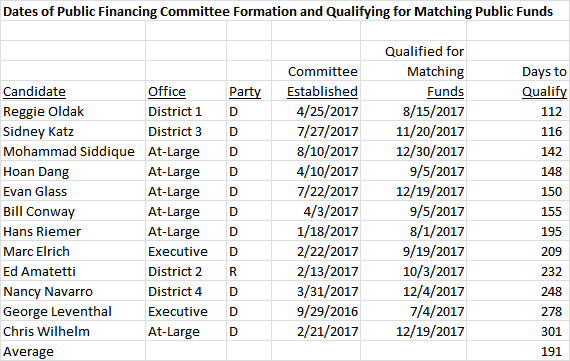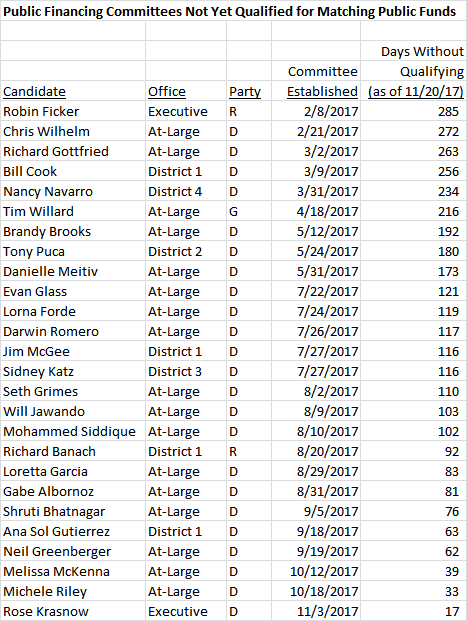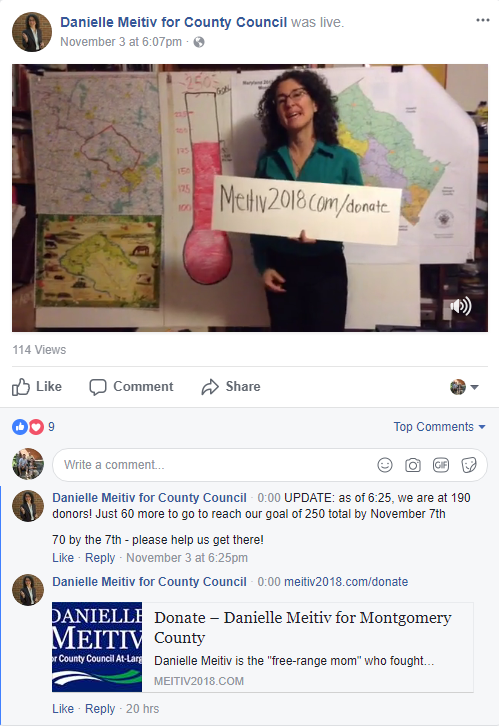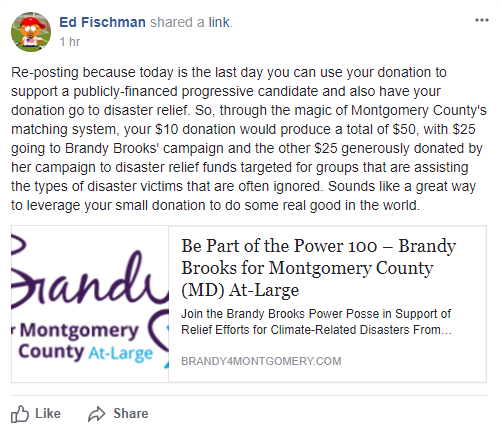By Adam Pagnucco.
Happy New Year, folks! After a relatively quiet period in the fall, December saw a number of applications for public matching funds from county candidates participating in public financing. One of the many positive things about public financing is that when candidates apply for matching funds, they have to file full reports with the State Board of Elections. That gives data junkies like your author – and Seventh State readers! – lots of updated data without waiting for the relatively few regular campaign finance reports in the state’s schedule. The next time all campaign finance reports are due, both from public and traditional accounts, is on January 17.
The candidates below have met the thresholds for matching funds and have applied for those funds from the state.
A few notes. The column titled “Non-Qualifying Contributions and Loans” refers to loans from candidates and their spouses (up to $12,000 is allowed) and out-of-county contributions, which are allowed but not matched. The column titled “Adjusted Cash Balance” includes the cash balance in the last report plus the most recent matching funds distribution requested but not yet received. It is the closest we can approximate the financial position of each campaign at the time they filed their last report. The column titled “Burn Rate” is the percentage of funds raised that has already been spent. Generally speaking, candidates should strive to keep their burn rates low early on to save money for mail season. Mohammad Siddique’s totals are preliminary as there are a few issues in his report that will have to be resolved with the Board of Elections. And District 4 Council Member Nancy Navarro applied for $35,275 in matching funds but cannot receive them unless she gets an opponent.
Below is the number of days each candidate took to qualify for matching funds. Let’s remember that the thresholds are different: 500 in-county contributors with $40,000 for Executive candidates, 250 in-county contributors with $20,000 for at-large council candidates and 125 in-county contributors with $10,000 for district council candidates.
So what does it all mean? Here are a few thoughts.
County Executive Race
Council Members Marc Elrich and George Leventhal, who are using public financing and running for Executive, have been active in county politics for a long time. Elrich first joined the Takoma Park City Council in 1987 and has been on the county ballot in every election since. He has been an elected official for thirty years. Leventhal worked for U.S. Senator Barbara Mikulski and was the Chair of the county Democrats in the 1990s. He played a key role in defeating a group of Republican Delegates in District 39 in the 1998 election. Both of these fellows have built up large networks of supporters over many years and they have done well in public financing, raising similar amounts of money from similar numbers of people.
The difference between them is burn rate. Leventhal is spending much more money than Elrich early, with some of it going to a three-person staff. He had better hope this early spending is worth it because if this trend keeps up, Elrich could have almost twice as much money as Leventhal available for mailers in May and June.
At-Large Council Race
One of Council Member Hans Riemer’s advantages as the only incumbent in this race is the ability to raise money, and he has put it to good use in public financing. Riemer leads in number of contributors and total raised. He has also maintained a low burn rate. This is Riemer’s fourth straight county campaign and he knows what he’s doing at election time. His biggest problem is that his name will be buried near the end of a VERY long ballot.
The five non-incumbents who have qualified for matching funds have raised similar amounts of money so far. As a group, they are not far behind Riemer. The one who stands out here is Bill Conway. Hoan Dang, Evan Glass, Chris Wilhelm and Mohammad Siddique all filed in December while Conway last filed in September. Our bet is that when Conway files next month, he will show four months of additional fundraising that will put him close to Riemer’s total.
That said, the five non-incumbent qualifiers have so far separated themselves from the rest of the field. Gabe Albornoz and Danielle Meitiv have said they have qualified but have not filed for matching funds with the state. No other candidates have claimed to qualify. Raising money in public financing takes a long time and raising a competitive amount (at least $250,000) takes a REALLY long time. Those at-large candidates who do not qualify soon risk appearing non-viable.
Public Matching Funds Will Be Nowhere Close to $11 Million
The county has so far set aside $11 million to cover the cost of public matching funds. That appears to be waaaaaay too much with only $1.4 million so far disbursed. Our guess is that the ultimate total will be less than half what was allocated and will be even lower in the next election cycle with fewer seats open.
Incumbents Have Nothing to Fear From Public Financing
Five council incumbents are using public financing. All five have qualified for matching funds and have done so fairly easily. We will see how the challengers stack up, particularly in the at-large race, but so far the only at-large incumbent (Hans Riemer) is leading. As we predicted last April, public financing is good for incumbents because it allows them to leverage their networks into lots of small individual contributions. State legislators and other County Councils should take heed.
That’s it for now, folks. Come back in a couple weeks when all reports, including those from traditional accounts, are due and we’ll put it all together for you!









